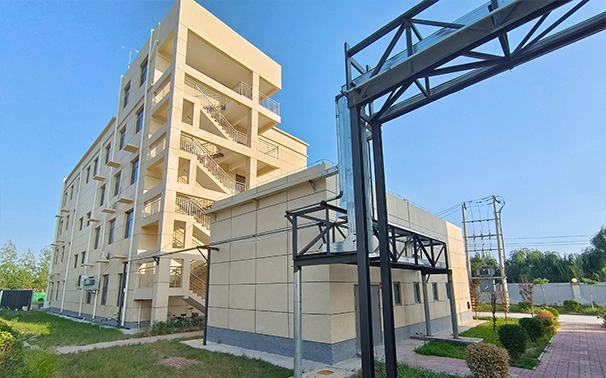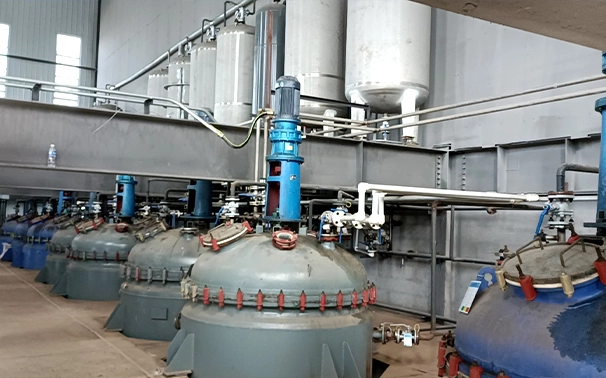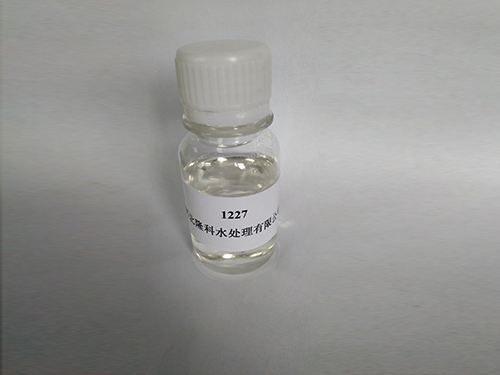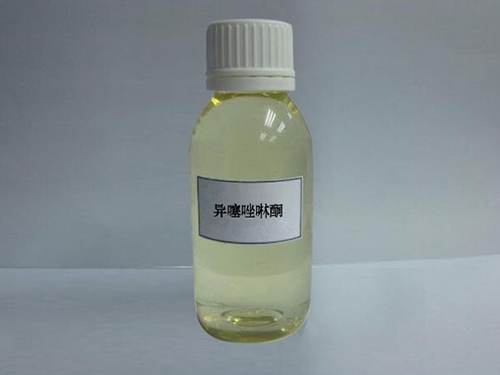Biocide and Algicide, Products
Biocides are substances—either chemical compounds or microorganisms—that play a crucial role in controlling or eliminating harmful organisms. From destroying bacteria and fungi to inhibiting the growth of algae, biocides have become essential across a range of industries. Common biocide examples include isothiazolinones, benzalkonium chloride, and various algicides used in industrial water systems, public sanitation, and agricultural processes. As global awareness of hygiene, microbial resistance, and water quality increases, the demand for biocides for sale has surged, particularly in sectors that rely on effective microbial control.
Longke, a trusted biocide manufacturer, offers a full suite of advanced biocide chemicals engineered to deliver reliable performance across multiple applications. Their product range includes non-oxidizing biocide, biocide insecticide, and algicide and clarifier blends tailored for water treatment plants, industrial processes, and hygiene-sensitive environments. These biocides are designed to effectively suppress microbial growth without harming system integrity or human safety. Whether used in cooling tower maintenance, wastewater treatment, or agricultural sanitation, Longke’s products are developed with an emphasis on long-term efficacy, environmental responsibility, and user safety.
Benzalkonium chloride, one of Longke's signature biocide ingredients, is widely appreciated for its disinfectant, algicidal, and antimicrobial properties. Found in everything from hospital-grade disinfectants to household cleaners and eye drops, benzalkonium chloride solution is a flexible and potent agent. Internationally, it may also be labeled as benzalkonium chlorure, particularly in European markets. Its wide application as a surface sanitizer and pharmaceutical preservative underlines its reliability and low toxicity at proper concentrations.
The diversity of biocide types depends on their application and the organisms they are intended to control. In swimming pools, algicides are used to prevent slippery, unsightly algae blooms. In industrial cooling systems, biocides help prevent biofilm formation that can lead to corrosion and operational inefficiencies. Meanwhile, biocide insecticides help manage pests in agriculture without contaminating soil or water. With each formulation, Longke brings targeted precision and consistent performance, making their biocides a go-to choice for professionals seeking safe, scalable solutions. As a leader in the field, Longke continues to innovate and deliver high-quality biocide solutions that meet the evolving needs of global industries, ensuring cleaner, safer, and more sustainable environments.
-
CAS No. 8001-54-5 or 63449-41-2, 139-07-1
-
CAS No. 26172-55-4, 2682-20-4
What Are The Common Types of Biocides?
Biocides play a critical role in managing microbial growth in water systems, industrial processes, and public health applications. Broadly speaking, biocides fall into two main categories: oxidizing biocides and non-oxidizing biocides. Oxidizing biocides, such as chlorine, chlorine dioxide, and hydrogen peroxide, act by chemically breaking down and disrupting the structure of microbial cells, effectively killing bacteria, algae, and fungi on contact. These types of biocides are fast-acting and are commonly used in cooling towers, swimming pools, and wastewater treatment facilities, where high microbial load and organic contaminants are present. Their quick and aggressive action makes them particularly effective in situations where immediate microbial control is necessary. However, they must be used carefully to avoid overuse, which can lead to corrosive damage to system components.
On the other hand, non-oxidizing biocides operate through more targeted mechanisms, often interfering with the metabolic or reproductive processes of microbes. Common examples include isothiazolinones, glutaraldehyde, and benzalkonium chloride. These compounds are often preferred in closed-loop systems, HVAC units, and industrial water circulation systems, where long-term microbial suppression is required with minimal corrosion risk. In addition to these core types, there are also more specialized forms of biocides tailored to particular applications. For example, biocide insecticides are used to control insect-borne bacteria and viruses in agricultural or health-related contexts. Algicides and clarifiers are widely used in pool and spa maintenance to prevent algae blooms and improve water clarity. Surface sanitizers, another important subgroup, are crucial in food processing, healthcare, and public sanitation to ensure hygiene and prevent biofilm formation. Understanding the different types of biocides and how they function helps ensure the right product is selected for each application—whether it’s for preventing microbial contamination in manufacturing equipment, maintaining hygienic conditions in public facilities, or ensuring the safety and clarity of recreational water systems.
Can I Use Benzalkonium Chloride on My Pimples?
Yes, benzalkonium chloride can be cautiously and effectively used on pimples, as long as it’s applied correctly and in appropriate concentrations. Known widely as a biocide chemical, benzalkonium chloride offers antimicrobial properties that help reduce acne-causing bacteria on the skin. It works by breaking down the microbial cell walls, disrupting their ability to thrive and cause infection. When used in a benzalkonium chloride solution, it can cleanse inflamed or clogged pores, which are often the root cause of pimples. Many people turn to BAC benzalkonium chloride as an antiseptic for minor wounds, but its benefits can extend to skin prone to acne as well. Thanks to its ability to reduce surface-level bacteria without the harsh dryness of alcohol-based products, it’s becoming a go-to alternative for sensitive skin users.
That said, benzalkonium chloride application should be done with care. Always dilute according to recommended guidelines or choose a pre-formulated product specifically designed for skin use. Overuse or high concentrations may irritate the skin or cause contact dermatitis in some individuals, especially those with very sensitive skin. However, when applied properly, benzalkonium chlorure provides a gentle disinfecting layer, which can help soothe breakouts while reducing the chance of future flare-ups. Its dual function as a disinfectant and anti-inflammatory agent makes it suitable for managing occasional pimples or keeping skin clean post-extraction. If you’re struggling with acne that doesn’t respond well to traditional products, a well-balanced benzalkonium chloride solution may be the innovative addition your skincare routine needs.
In short, for those looking for a more clinical and antimicrobial approach to managing pimples, BAC benzalkonium chloride offers a compelling solution. It’s trusted in both medical and personal care fields, and now it’s gaining attention for its skincare potential. When applied correctly, it can be a smart, science-backed option to promote clearer, calmer skin. Give your skin the cleansing support it deserves—consider adding a benzalkonium-based product to your daily regimen.
Are Benzalkonium Chlorides Safe to Use?
When used properly and in accordance with established benzalkonium chloride application guidelines, benzalkonium chlorides are widely regarded as both effective and safe for a variety of uses. As a well-known quaternary ammonium compound, benzalkonium chloride is commonly found in disinfectants, antiseptics, and non-oxidizing biocides used across multiple industries. Its powerful antimicrobial properties make it a go-to solution for controlling bacteria, fungi, and some viruses. However, like all biocidal chemicals, its safety is closely tied to proper dosage, handling, and usage. Leading biocide producers such as Longke formulate their products with safety and efficacy in mind, ensuring that their biocide chemicals comply with international environmental and health regulations. This includes rigorous internal testing and transparent labeling to help end users apply the product safely. Especially in water treatment and industrial maintenance, non-oxidizing biocides containing benzalkonium chloride are designed to be non-corrosive, low-foaming, and environmentally stable—features that help minimize any potential harm to equipment or human health when used correctly.
It is essential for users to follow all biocide insecticide application instructions as well as consult the biocide safety data sheets (SDS) that come with each product. These documents provide important information about safe storage, personal protective equipment (PPE), potential exposure risks, and emergency measures. While benzalkonium chloride is a potent and useful compound, incorrect usage—such as over-concentration, improper mixing, or prolonged exposure—can lead to skin irritation or unintended environmental impacts. Therefore, user education is key. Longke and other responsible manufacturers promote clear guidance and customer support to help ensure that their biocide formulations are used in ways that balance safety with strong microbial control. In commercial and industrial contexts—from cooling water systems to surface disinfection—benzalkonium chloride continues to be a trusted ingredient. When applied responsibly and backed by robust quality control, it offers a reliable solution for microbial management without compromising on user or environmental safety.
Why Choose Non-Oxidizing Biocides Over Oxidizing Ones?
In industrial and commercial water treatment, selecting the appropriate biocide can make a significant difference in system performance and equipment longevity. Non-oxidizing biocides are often the preferred choice for systems where minimizing corrosion is essential, particularly in applications that involve metal piping, such as in HVAC, cooling towers, and closed-loop systems. Unlike traditional oxidizing biocides like chlorine or sodium hypochlorite (bleach), non-oxidizing options are chemically less aggressive, meaning they don’t rapidly react with metal surfaces or other system materials. This translates into lower corrosion risk, which in turn reduces long-term maintenance costs and equipment failure. Additionally, non-oxidizing biocides are more stable under varying pH conditions and remain active for longer periods without degrading, offering extended microbial control with fewer dosing cycles.
Another compelling advantage of non-oxidizing biocide treatment lies in its broad-spectrum antimicrobial action. These disinfectant biocides are specifically engineered to disrupt the metabolic functions of bacteria, algae, fungi, and slime-forming organisms, making them highly effective in environments with complex microbial loads. This versatility ensures consistent performance even when water conditions fluctuate or biofilm starts to form. In contrast, oxidizing agents can sometimes be neutralized by organic material present in the water, diminishing their effectiveness over time. Therefore, choosing the right biocide chemical is not a one-size-fits-all decision—it must be based on the specific system materials, operating conditions, and microbial threats. For facilities looking to optimize both protection and performance, non-oxidizing biocides offer a smart, efficient, and long-lasting non-oxidizing biocide solution that aligns with modern water treatment goals.
What Are Benzalkonium Chloride Functions?
Benzalkonium chloride is a highly adaptable quaternary ammonium compound widely recognized for its multifunctional role across healthcare, pharmaceutical, and personal care industries. Its most notable function lies in its powerful antimicrobial properties, capable of targeting a broad range of bacteria, fungi, and some viruses. The compound achieves this by disrupting microbial cell membranes through its interaction with negatively charged phospholipids, causing leakage of cell contents and ultimately cell death. This mechanism underpins its use in dermatological cleansers, wound care solutions, mucosal antiseptics, and hand sanitizers. Particularly in the pharmaceutical field, benzalkonium chloride serves as a cationic surfactant, helping dissolve lipid membranes and enhance the penetration of active drug ingredients. It is commonly found in ophthalmic preparations where it acts as a preservative; however, due to concerns about its potential for ocular toxicity, there has been a growing shift toward preservative-free alternatives. Nonetheless, in appropriate formulations, it remains an effective stabilizer and enhancer of bioavailability.
In cosmetic and personal care products, benzalkonium chloride plays a dual role as a cleansing agent and preservative, helping maintain product integrity and safety over time. It is typically used at concentrations between 0.1% and 0.13%, with 0.13 benzalkonium chloride found in many first aid antiseptic solutions. These products are designed to prevent infections and provide symptomatic relief for minor wounds, burns, and scrapes. The amphiphilic nature of benzalkonium chloride—meaning it contains both water-loving and oil-loving components—enhances its spreadability and ability to contact and neutralize a wide spectrum of microbes. While formulations containing 0.1 benzalkonium chloride are more commonly found in gentle personal care products such as facial cleansers and hygiene sprays, the slightly higher 0.13% concentration is used when stronger antimicrobial action is required. Thanks to its reliable preservative, surfactant, and disinfectant functions, benzalkonium chloride remains an essential ingredient in countless medical and commercial applications.
-
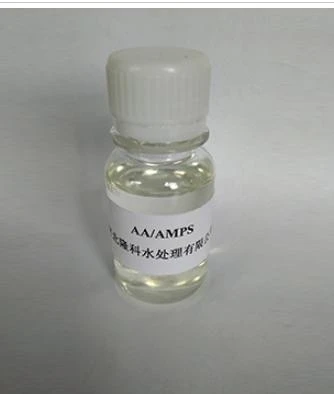 Understanding Polycarboxylic Acids: Properties, Applications, and Future PotentialPolycarboxylic acids are a versatile group of polymers widely used in water treatment, cleaning products, concrete admixtures, textiles, and even sustainable materials.lees meer
Understanding Polycarboxylic Acids: Properties, Applications, and Future PotentialPolycarboxylic acids are a versatile group of polymers widely used in water treatment, cleaning products, concrete admixtures, textiles, and even sustainable materials.lees meer -
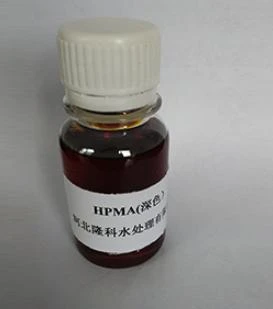 Scale Inhibitor Explained: How to Protect Your System from Limescale and Hard Water DamageIn water systems—from industrial boilers and cooling towers to household appliances—scale is a persistent enemy.lees meer
Scale Inhibitor Explained: How to Protect Your System from Limescale and Hard Water DamageIn water systems—from industrial boilers and cooling towers to household appliances—scale is a persistent enemy.lees meer -
 Scale and Corrosion Inhibitors: Essential Chemicals for Industrial Water System ProtectionIn industrial water systems—cooling towers, boilers, heat exchangers, pipelines, and RO systems—two silent threats can cause serious damage over time: scale formation and corrosion.lees meer
Scale and Corrosion Inhibitors: Essential Chemicals for Industrial Water System ProtectionIn industrial water systems—cooling towers, boilers, heat exchangers, pipelines, and RO systems—two silent threats can cause serious damage over time: scale formation and corrosion.lees meer -
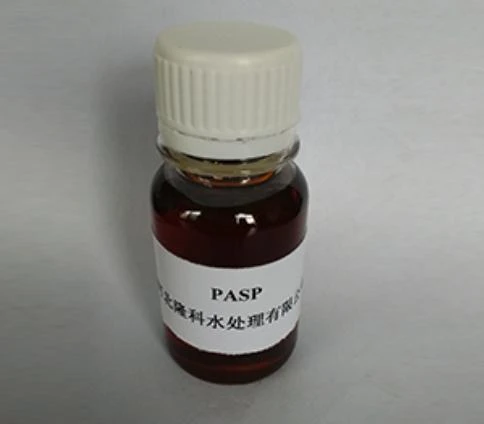 Polyaspartic Acid: A Biodegradable Polymer for Sustainable ChemistryAs industries move toward more sustainable materials, polyaspartic acid (PASP) is gaining traction across sectors—from water treatment and agriculture to coatings and biomedical applications.lees meer
Polyaspartic Acid: A Biodegradable Polymer for Sustainable ChemistryAs industries move toward more sustainable materials, polyaspartic acid (PASP) is gaining traction across sectors—from water treatment and agriculture to coatings and biomedical applications.lees meer







